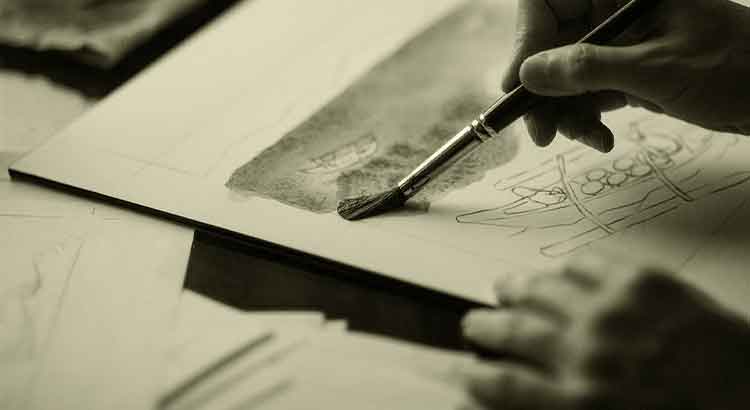There is something really beautiful in the process of poetic creation that only the poet can experience. The poem, when conceived, most often looks excellent: the idea is given, which is timidly transferred to the paper. Here, there is nothing concrete and well-defined, only a vague intention, and an image that seems to glimmer. Then follows the sketch, which comes out clumsy, if not disastrous, resulting in a kind of reality shock in the poet’s head. The idea, once brilliant, now seems bad, and its realization seems unfeasible, unable to produce the effects that seemed so simple and certain. The poet, then, has to decide: does he abandon the enterprise? does he continue with his intent? If he chooses the latter, there follows a long and exhausting work to improve the repulsive sketch, to bring it as close as possible to that image that seemed optimal to him. Then the verses are repeated over and over again in his mind and, little by little, it points out their flaws, modifies them, substituting words, framing them in a more interesting and more pleasant rhythm. Finally, almost miraculously, the sketch becomes a poem, and no longer retains the bulk of the disgusting aspects of former times. Sometimes there is a satisfactory approximation to the initial idea; sometimes something different is achieved. The time comes when the verses, already engraved in the mind, have to rest. And for an indefinite time, unexpectedly, the mind goes on with its work, polishing some edges, pointing out new solutions, and sometimes giving a hitherto non-existent shine to the verses already shaped. When this happens, the poet, remembering the bitter impression made by the sketch, and comparing it with the final result, can only rejoice and smile.
Tag: literature
My Best Humor…
My best humor—I can perhaps call it my sarcastic vein—proves to me the best precisely because it manifests itself with maximum intensity at serious moments. I know well how Cioran felt: it is an irresistible impulse! This is why, relaxed, I may not feel instigated to joke. To make good jokes, I have to be in a solemn atmosphere; then they come out as if by automatism, if not necessity. And so I realize that in these Notes, which are light, calm, almost effortless, it is very rare to find evidence of my fatal inclination to clowning. But in my “serious” lines, where I put myself in a state of full concentration, where I extract from my heart what seems to me the purest truth, where—there is no denying it…— I often get myself, exactly like Cioran, to pour pessimism, despair and disenchantment on paper, then, precisely in these moments, also like Cioran, I have the feeling that it is almost a sin to waste them as a background for a crude joke. Unfortunately, I cannot change my nature…
Finally…
It is a real joy to see that, after almost a year of hard work and repeated regrets, I can finally register here that I have finished a new little volume of poems. In poetry, it is undeniable that there is such a prize. It pleases the feeling of being the author of finished verses, a feeling that is quite different with prose. It is pleasing, above all, because poetry surprises, due to the poetic technique itself, and surprises even the reader who is the author of the verses he reads. This surprising effect, when unveiled by the new reading, brings sincere satisfaction by evoking in mind the moment of brilliance of its creation. This is poetry: a lot of hard work, and a few flashes that seem to justify such work; flashes that, shining in the midst of a cohesive whole, confer immense value to a deceptively sterile creation.
Art, in Its Most Authentic Manifestation, is the Expression…
The artist who aspires to success while alive deserves it, and deserves it because art is a very difficult choice. However, such an artist can never, ever aspire to a position among the greatest, since supreme art expects nothing and has nothing to expect. Art, in its most authentic manifestation, is the expression that springs from a need and has as its purpose the expression itself. It matters little the means by which it expresses itself, or the techniques it uses: these are mere details which, when over-emphasized, obscure this self-evident truth: great art is not made on a whim.
